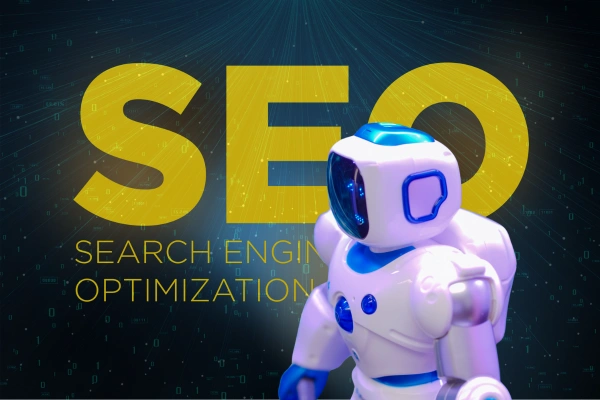Business growth is the top priority for every entrepreneur, and AI is transforming the path to achieving it, particularly in SEO. And right now, AI is shaking up how we get there, especially in SEO. The big question isn’t just “Can AI replace human SEOs?” but “How can you use AI to grow your business faster without losing the human edge?” The short answer? AI in SEO won’t replace humans, but it will redefine how they work. In this blog, we will discuss the same.
AI in SEO for Business Growth
AI isn’t here to steal jobs—it’s here to speed up results. For business owners, that means:
- Faster keyword research (AI SEO tools like SEMrush & Ahrefs are used to find high-converting terms in seconds.)
- Smarter content optimization (AI suggests edits for readability, SEO, and engagement.)
- Predicting trends before they peak (Exploding Topics & BuzzSumo spot opportunities early)
But here’s the catch: AI can’t replace strategy. It can hand you data, but you decide what to do with it.
Why AI Can’t Replace SEO
AI has revolutionized key aspects of SEO:
- Keyword Research- From manual digging to instant intent-based suggestions (thanks to tools like ChatGPT).
- Content Optimization- Moving from guesswork to data-driven structuring (with tools like Clearscope).
- Content Generation- Speeding up ideation and drafts, freeing time for strategy.
Yet, AI alone can’t:
- Prioritize what truly matters for your business.
- Understand your audience’s deepest pain points.
- Create a brand voice that resonates emotionally.
Over-reliance on AI risks producing generic, robotic content, which can lead to a major loss of uniqueness that makes brands stand out. Without human judgment, AI powered SEO becomes hollow, missing opportunities and alienating audiences.
The Truth About AI in SEO: Demystifying the Myths
Let’s cut through the noise and separate fact from fiction. Here are the most common myths about AI in SEO, and why they don’t hold up under scrutiny:
Myth 1: “AI Can Write All My SEO Content—I Don’t Need Writers”
AI writing tools (like ChatGPT and Jasper) can generate drafts, outlines, and even full articles. But here’s the problem: AI lacks human nuance. It can’t replicate the emotional triggers that make customers click, trust, and buy. For example, a human writer knows how to frame a pain point like “struggling with low website traffic” in a way that resonates deeply.
Myth 2: “AI Understands My Customers Better Than I Do”
AI can analyze search trends and user behavior, but it doesn’t feel your customers’ frustrations. A tool might tell you that “best CRM for small teams” is a high-volume keyword, but only a human can create SEO-optimized content that speaks to the real struggles behind that search, such as budget constraints or ease of use. AI can’t predict cultural shifts, humor, or the subtle tone that builds trust.
Myth 3: “SEO Is Dead—AI Will Handle Everything Now”
Some believe AI will make traditional SEO obsolete. The opposite is true. Google’s AI (RankBrain, BERT, MUM) rewards content that genuinely helps users, not just keyword-stuffed pages. AI tools help you optimize faster, but the fundamentals—high-quality content, strong backlinks, and user experience—still drive rankings.
Conclusion
AI in SEO enhances efficiency but can’t replace human creativity, strategy, and emotional intelligence. While AI speeds up tasks like keyword research and content optimization, humans excel in understanding audience pain points, creating resonant brand voices, and making strategic decisions.
At Radial Impact Marketing, we believe in the power of AI-human collaboration. By using AI’s speed and data-driven insights alongside human expertise, we create SEO strategies that are not just optimized but truly impactful. Ready to Scale?

